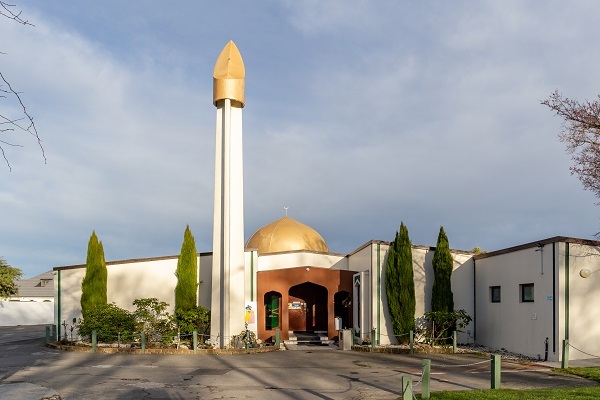New Zealand Terror Laws to Change to Stop Mosque Attacker's Terrorist Designation Expiring


The law change, announced by Justice Minister Kiri Allan on Wednesday, would change the terrorism designation regime to stop terrorists from applying for their status to be revoked on the basis they are “no longer involved” in carrying out terrorist acts.
Also, the designation of imprisoned terrorists would not come up for review until after they were released.
Allan declined to answer whether the Christchurch mosque terrorist had sought to have his designation status revoked: “I can’t respond or comment on any particular and specific individual cases.”
“The law change will impact any incarcerated person where a designation currently applies ... In New Zealand currently, there is one person incarcerated that has a designation that is applicable.”
Under the law change, the prime minister would review each terrorist designation yearly to determine whether “it remains justified”, instead of designations automatically expiring with the possibility of renewal every three years.
The changes to the laws would be retrospective, applying to people and entities that had already been designated terrorists.
The Christchurch mosque terrorist, who killed 51 worshippers at two mosques on March 15, 2019, was jailed for life without the prospect of parole in August 2020 and was designated a terrorist a week later.
Under the current laws, his designation would be set to expire in August 2023 and would require the prime minister to again renew the designation.
For a designation to be applied under the laws, the prime minister must believe the person or group is “knowingly” facilitating the carrying out of terrorist acts, or acting on behalf of a terrorist group.
Terrorism control orders expanded
The terrorism control order regime, so far only used on a person returning from the Daesh (ISIL or ISIS), would also be further expanded to capture people who pose a terrorism risk that share objectionable material not related specifically to terrorism but to torture, extreme violence or cruelty.
The government had sought to improve the control orders regime after a 2021 terror attack in which seven people were stabbed at an Auckland supermarket.
“There are circumstances that we have reflected on in the past where I think that we have learned lessons that would mean that we should ensure that we are applying control orders to the right people and we don't think that we have got their balance to date,” Allan said.
She said a person who distributed such material would only have a terrorism control order applied if there was “sufficient evidence that there really is that intent to have terrorist ramifications”.
People on home detention and community sentences would also be captured by the civil orders, and further ability to restrict a controlled person's movements would be provided.
Judges, who apply the terrorism control orders, will be given more discretion and name suppression requirements will be made “more flexible” so the public may in some circumstances know “a known terrorism risk is being appropriately managed”.
“There has to be a high standard and a high bar, and we think that we have struck the right balance,” Allan said.
The government worked with other political parties when drawing up the legislation, which will be introduced to the House this week and possibly passed into law by March 2023.
National Party leader Christopher Luxon said he had not “seen the detail” of the terror laws change but believed the party would support it.
Green Party co-leader James Shaw said the party was yet to discuss the bill but the changes “look reasonably minor and not terribly controversial”.
ACT Party leader David Seymour said his party would likely support the change, cautiously. “The Christchurch terrorist is an extremely bad person. But we have to balance that against making laws for just one person.
“This person does need to be controlled but I suspect that in the future we are going to have to review how this law is extended to other people and other circumstances. There is an old saying that lawyers have: Hard cases make bad law.”
The government previously expedited an overhaul of terrorism laws, which included an expansion of terrorism control orders, in September 2021 after the Auckland Countdown attack.
The law change, which had been recommended by the Royal Commission into the Christchurch mosque terror attacks, criminalized terror attack planning, preparation, weapons and combat training, with a maximum punishment of seven years in prison.
Source: Stuff.co.nz



